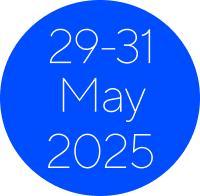Clinical seminar: The 6Ps of the scope of school-based physiotherapy: presence, participation, partnership, physical wellbeing, health promotion and prevention (CS-08)
Chair: Kirstin Macdonald (Australia)
Speakers: Nilly Waiserberg (Israel), Eda Cinar (Canada), Tawagidu Mohammed (Ghana)
Learning objectives
- The participant will be able to recognise the unique and extensive roles and responsibilities of paediatric physiotherapists working within different educational settings around the world, including collaboration, consultation, capacity building and the provision of contextually appropriate assessment and intervention.
- The participant will understand and be able to explain the practical application of current evidence-based interventions that promote students’ functional independence, participation in school activities, learning, physical and cognitive development, academic performance and overall health and wellbeing.
- The participant will identify appropriate collaborative approaches for different types of service delivery and learn how to collaborate with educators, parents, and other healthcare professionals to optimise students’ learning and health outcomes.
Session outline
This session will explore the diverse approaches to school-based physiotherapy across different countries, highlighting innovative practices, collaboration, and practical solutions to commonly encountered challenges. Participants will gain insight into a variety of service models and interventions that promote the learning, development and wellbeing of students within educational settings, around the world regardless of their abilities.
Introduction (5 minutes): The session will begin with an overview of the role of school-based physiotherapy and will set the stage for exploring diverse practices of physiotherapists working in educational settings.
Part 1: Global overview of school-based physiotherapy (15 minutes): Participants will learn about the role of school-based physiotherapists in various service delivery models across different countries. A tiered model of service delivery will be introduced, highlighting its application at three levels including school-wide initiatives (Tier 1), group interventions (Tier 2), and individualised supports (Tier 3). Case examples will be presented to show the implementation of school-based physiotherapy in different educational settings, underscoring commonalities and uniqueness of the approaches.
Part 2: Case studies of evidence-based practices (30 minutes): This section will present case studies from various countries, organised around key themes such as:
- Assessment in context: Examples of assessments conducted in students’ everyday environments.
- Diverse intervention approaches: An exploration of school-wide, group, and individual interventions, emphasising how these methods can adapt to the cultural and educational context of each country.
- Collaborative practices: Discussion on how multidisciplinary teams work together to best support students.
- Capacity Building: An examination of partnering, collaborating, and sharing knowledge and skills with other providers to best support children with various abilities in the school context.
Conclusion and Q&A (10 minutes): The session will conclude with a summary of key takeaways and an interactive Q&A, allowing participants to discuss how they can apply these global practices in their own work.
Session delivered by: International Organisation of Physiotherapists in Paediatrics
References
- Cinar, E., Anaby, D., Berbari, J., Johansen, K., & Camden, C. (2019). A preliminary study to develop a collaborative tiered school-based physical therapy service delivery model: Results from an international Delphi consultation. International Journal of Physiotherapy, 9(4).
- Cinar, E., Anaby, D., Dostie, R., & Camden, C. (2022). Perspectives of international experts on collaborative tiered school-based physiotherapy service delivery. Physical & Occupational Therapy in Pediatrics, 1-20.
- Effgen, S. K., & Kaminker, M. K. (2014). Nationwide survey of school-based physical therapy practice. Pediatric physical therapy, 26(4), 394-403.
- Effgen, S. K., Chiarello, L., & Milbourne, S. A. (2007). Updated competencies for physical therapists working in schools. Pediatric Physical Therapy, 19(4), 266-274.
- Garfinkel, M., & Seruya, F. M. (2018). Therapists’ perceptions of the 3:1 Service Delivery Model: A workload approach to school-based practice. Journal of Occupational Therapy, Schools, & Early Intervention, 11(3), 273-290.
- International Organisation of Physiotherapists in Paediatrics. (2020, December) Special Issue: School-based Physical Therapy Services – An International Perspective. The IOPTP Newsletter Edition 24, 2-23. https://www.ioptp.org/ioptp-newsletters
- Kapsal, N. J., Dicke, T., Morin, A. J., Vasconcellos, D., Maïano, C., Lee, J., & Lonsdale, C. (2019). Effects of physical activity on the physical and psychosocial health of youth with intellectual disabilities: A systematic review and meta-analysis. Journal of Physical Activity and Health, 16(12), 1187-1195.
- Kinsey, E., Curto, C., Glassman, D., Sundberg, M., Rosemeyer, K., & Rapport, M. J. (2022). Changing the Paradigm of School-Based Physical Therapist Service Delivery: Using Evidence to Support Intensive Intervention. Pediatric Physical Therapy, 34(1), 73-80.
- Macdonald, K., Milne, N., Orr, R., & Pope, R. (2018). Relationships between motor proficiency and academic performance in mathematics and reading in school-aged children and adolescents: A systematic review. International journal of environmental research and public health, 15(8), 1603.
- Mccoy, S. W., Effgen, S. K., Chiarello, L. A., Jeffries, L. M., & Villasante Tezanos, A. G. (2018). School‐based physical therapy services and student functional performance at school. Developmental Medicine & Child Neurology, 60(11), 1140-1148.
View all clinical seminars
See the 11 clinical seminars to be presented at congress.
View all speakers
Find out who the key speakers at congress will be.
Registration
View the registration fees and register for congress.




